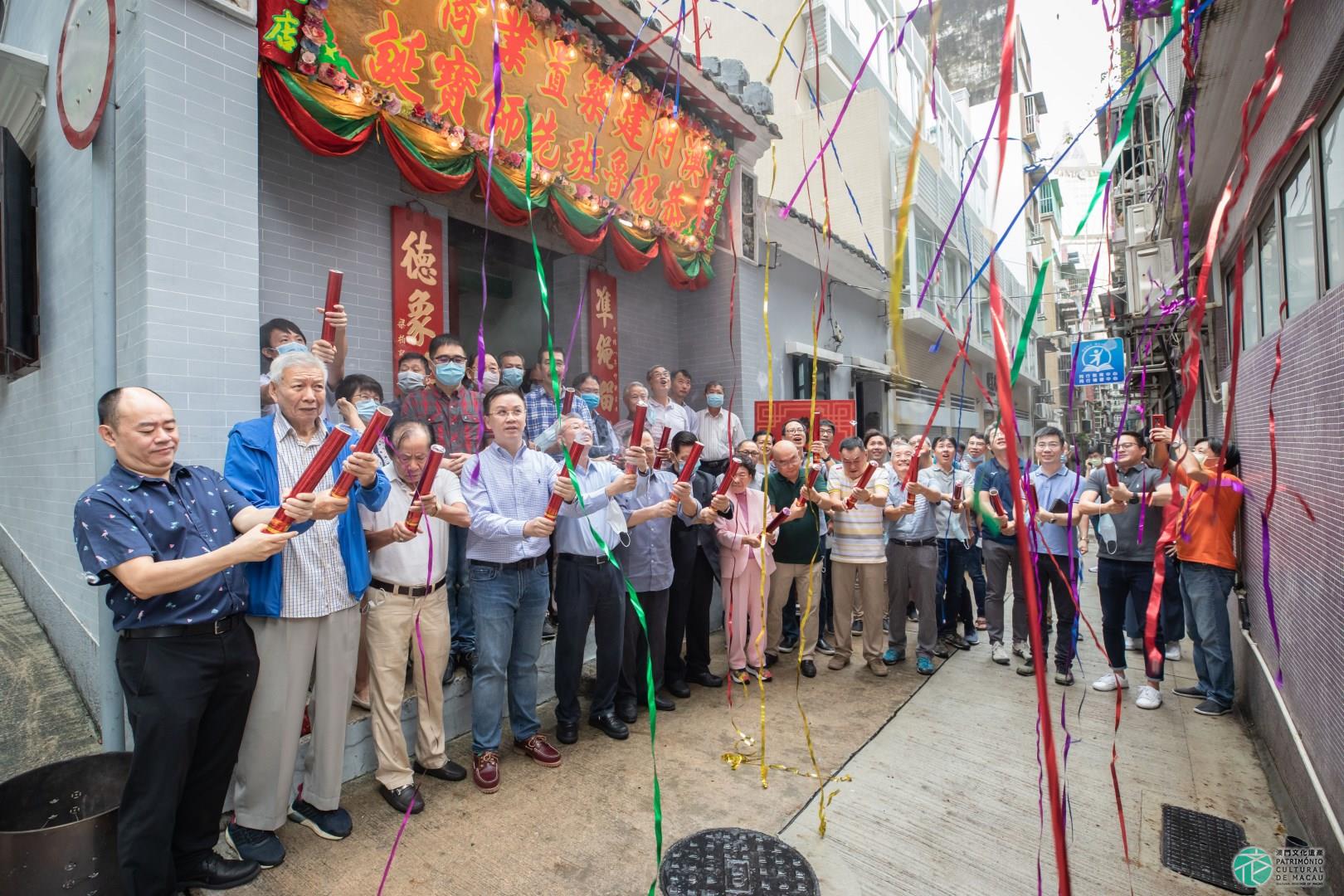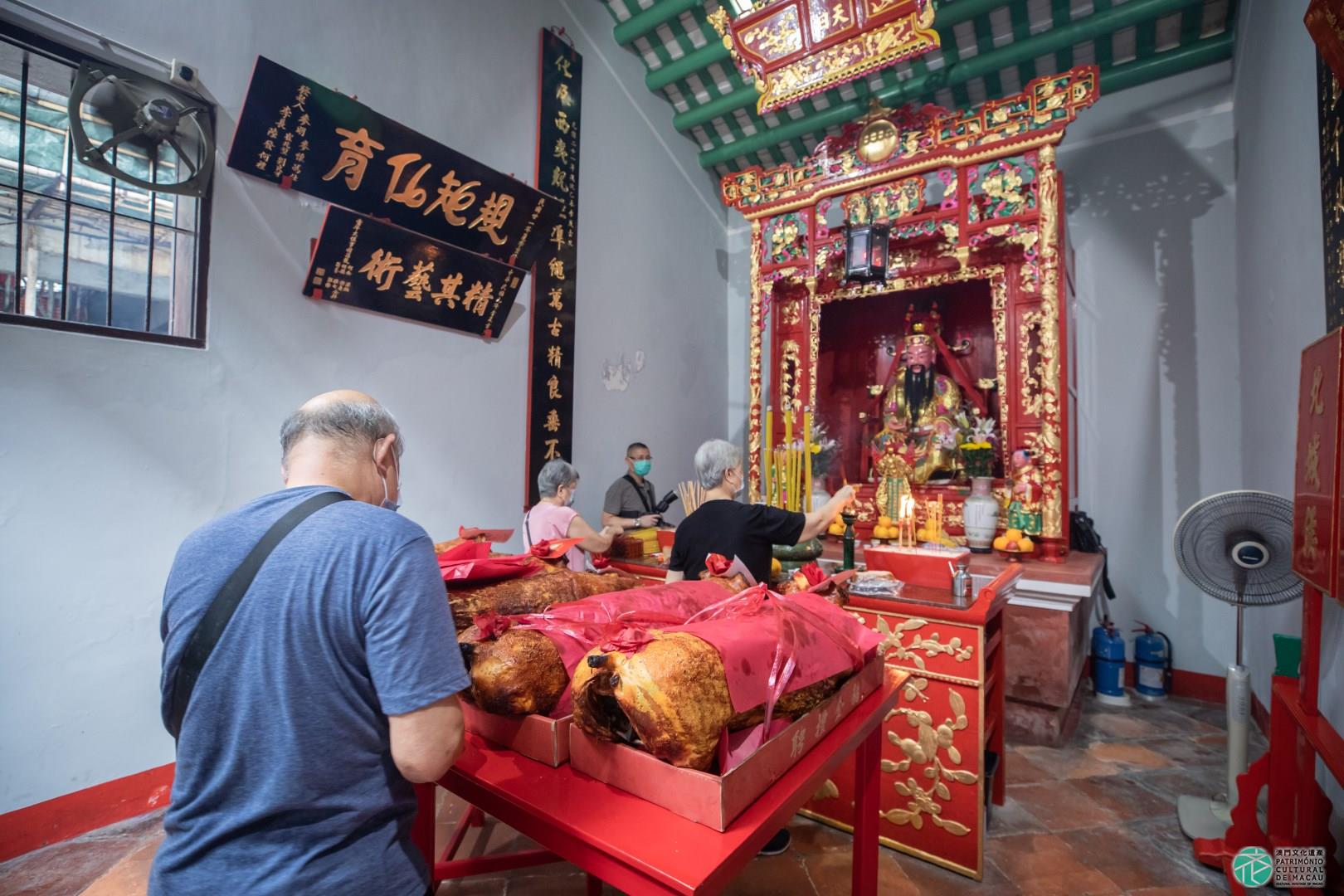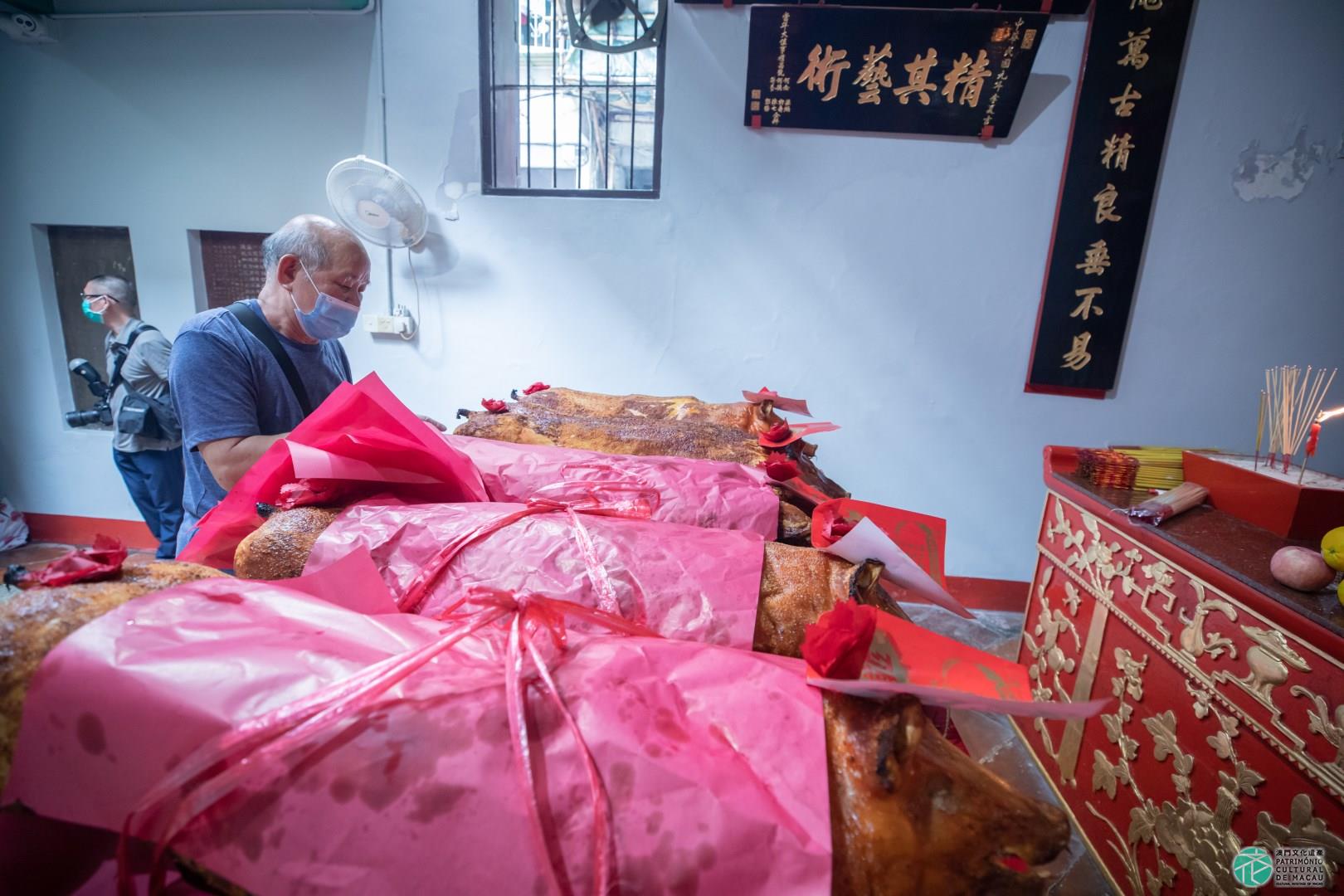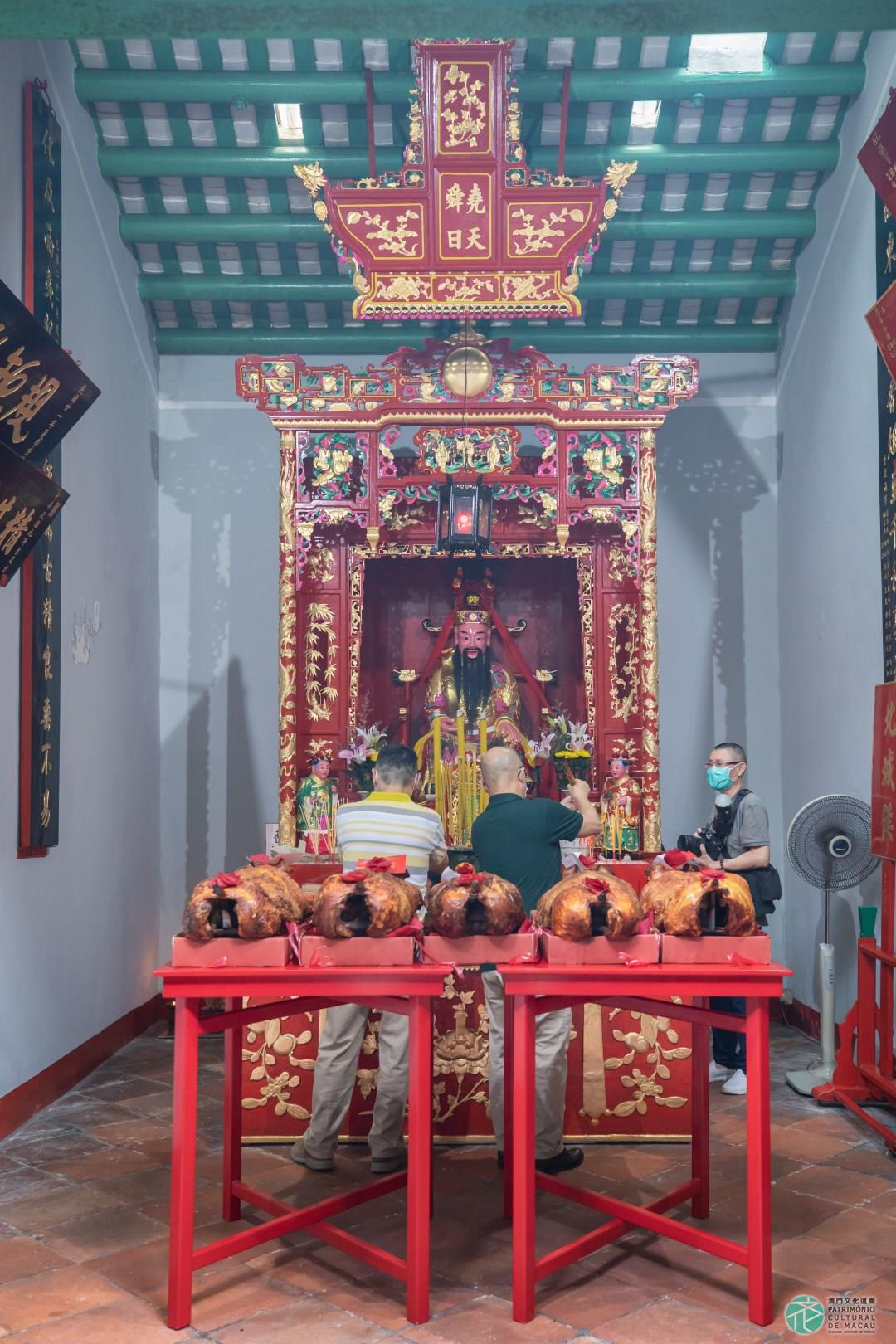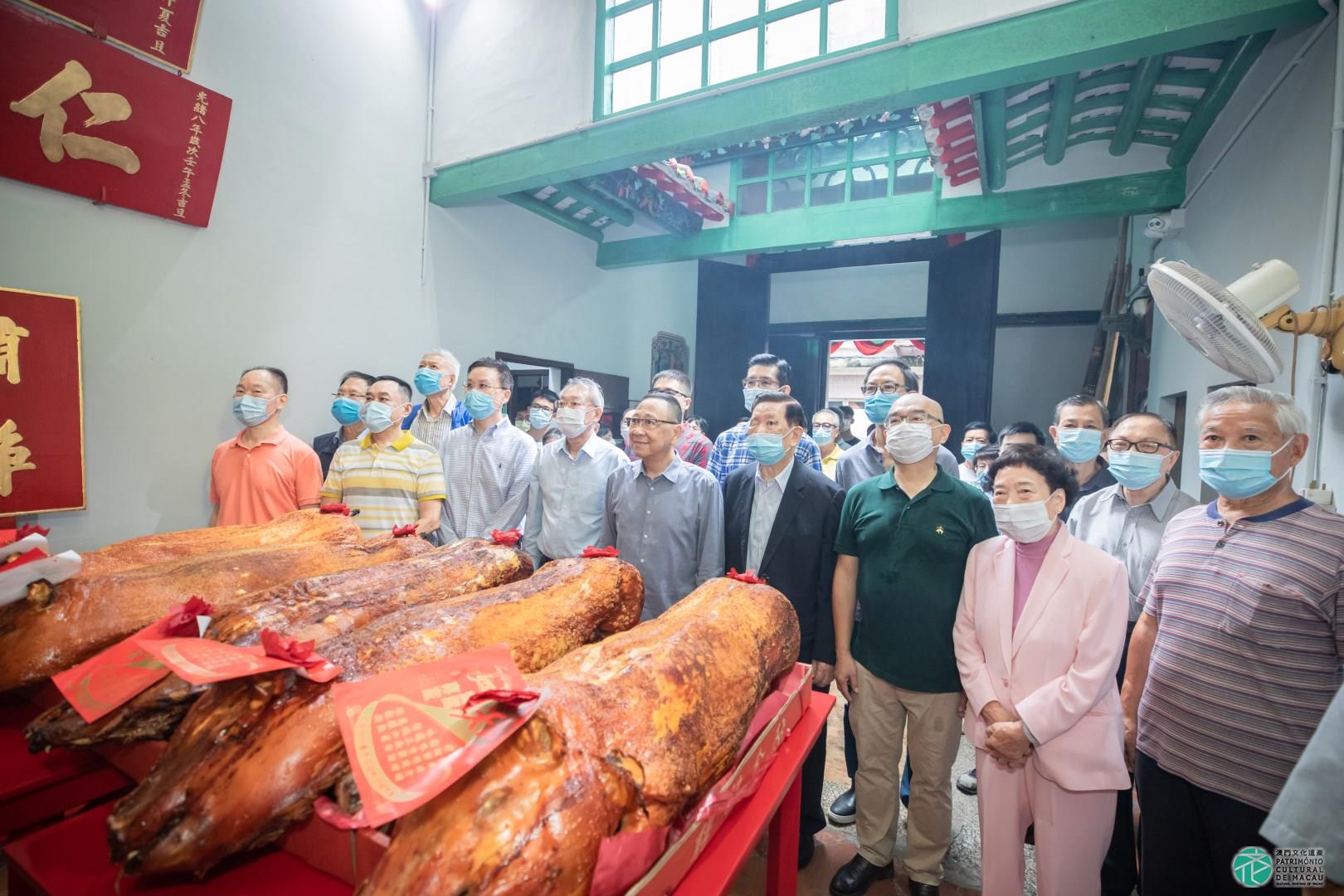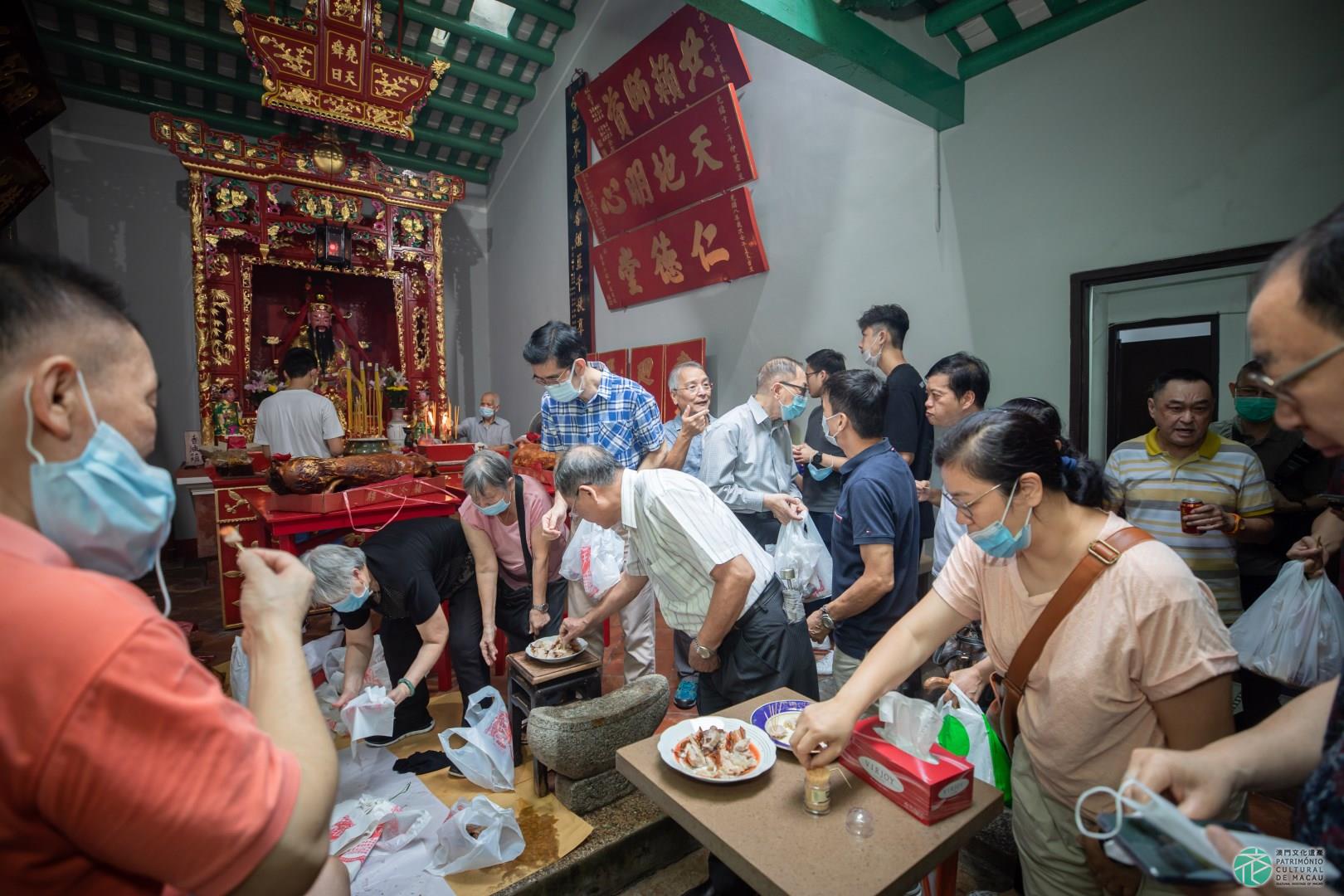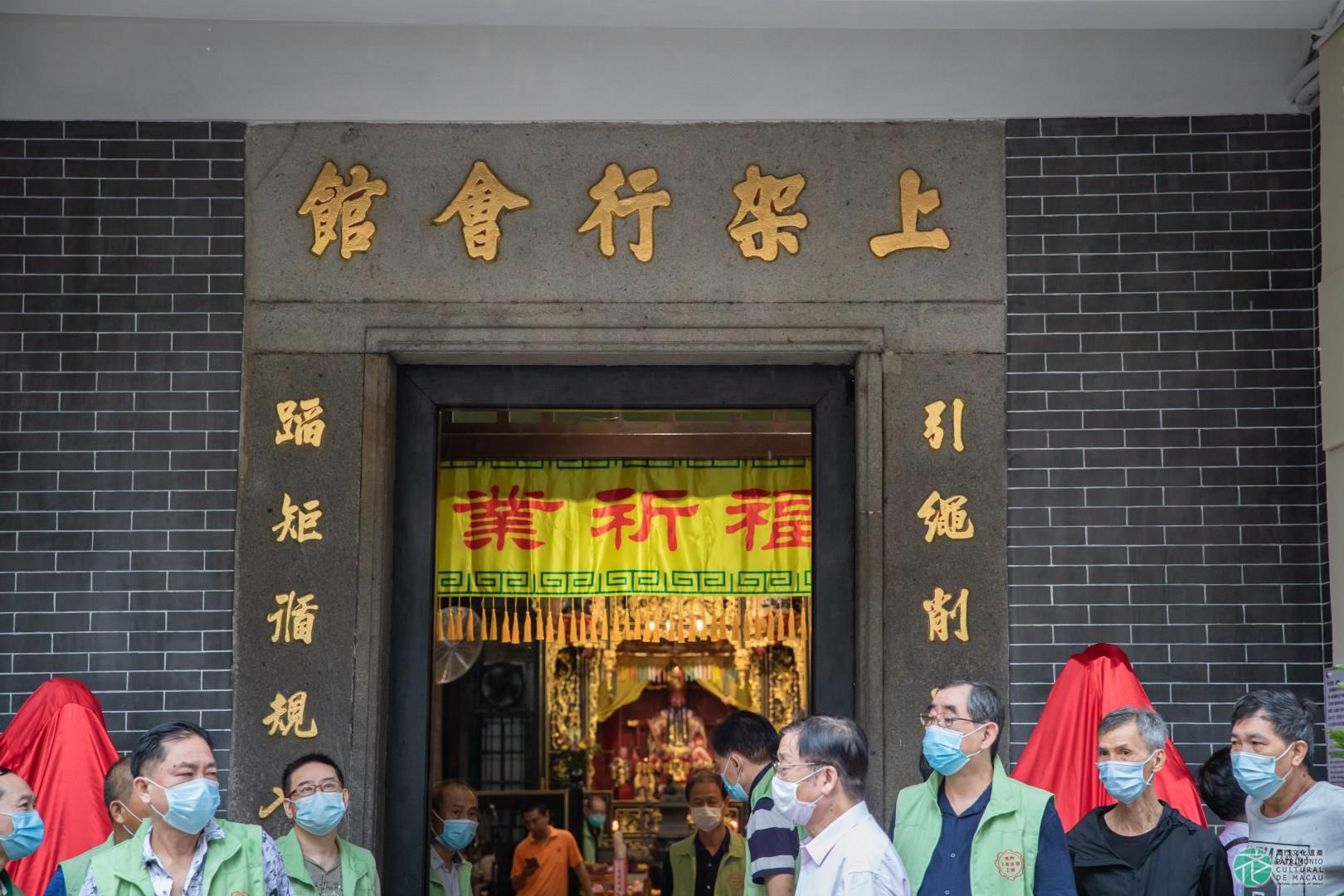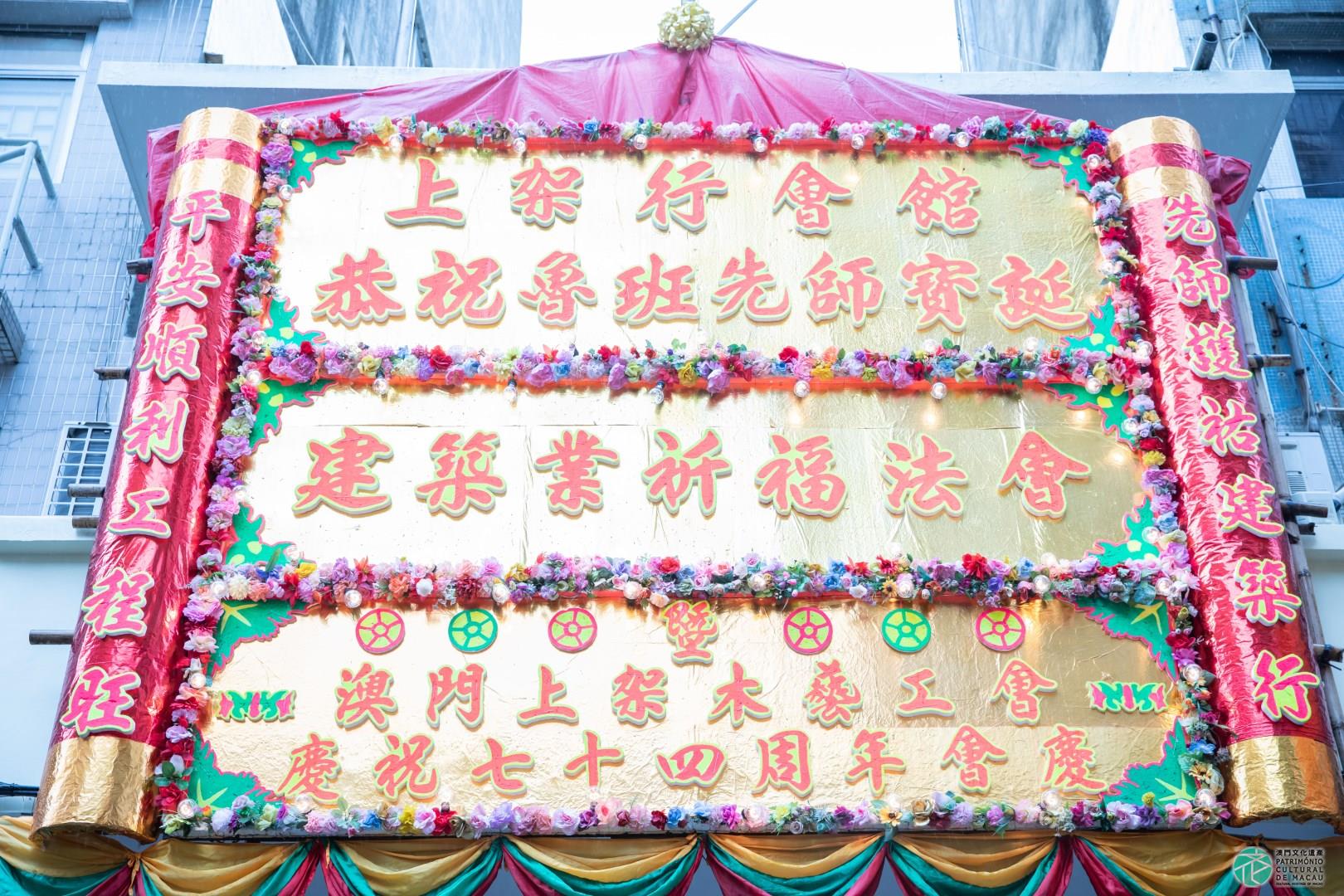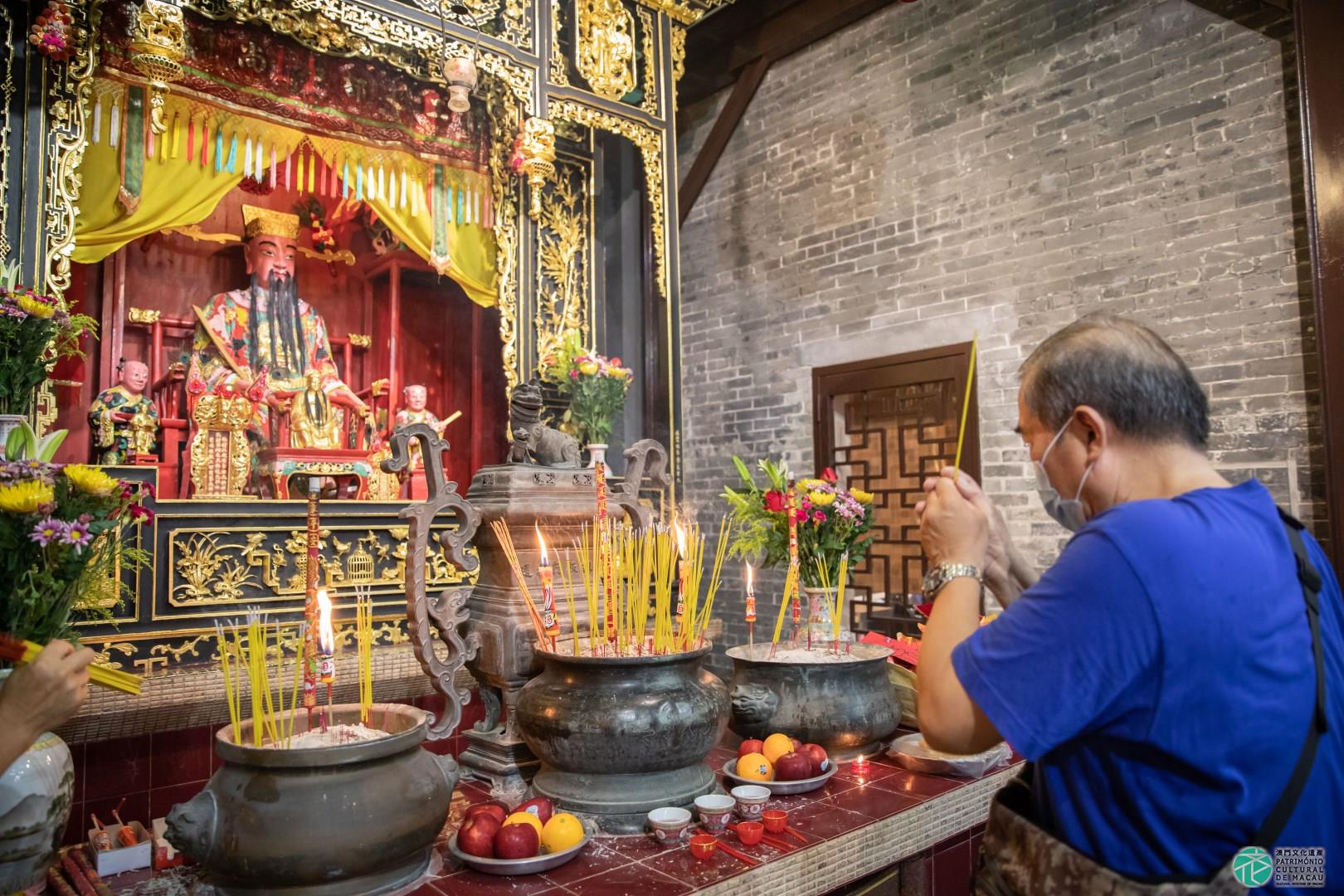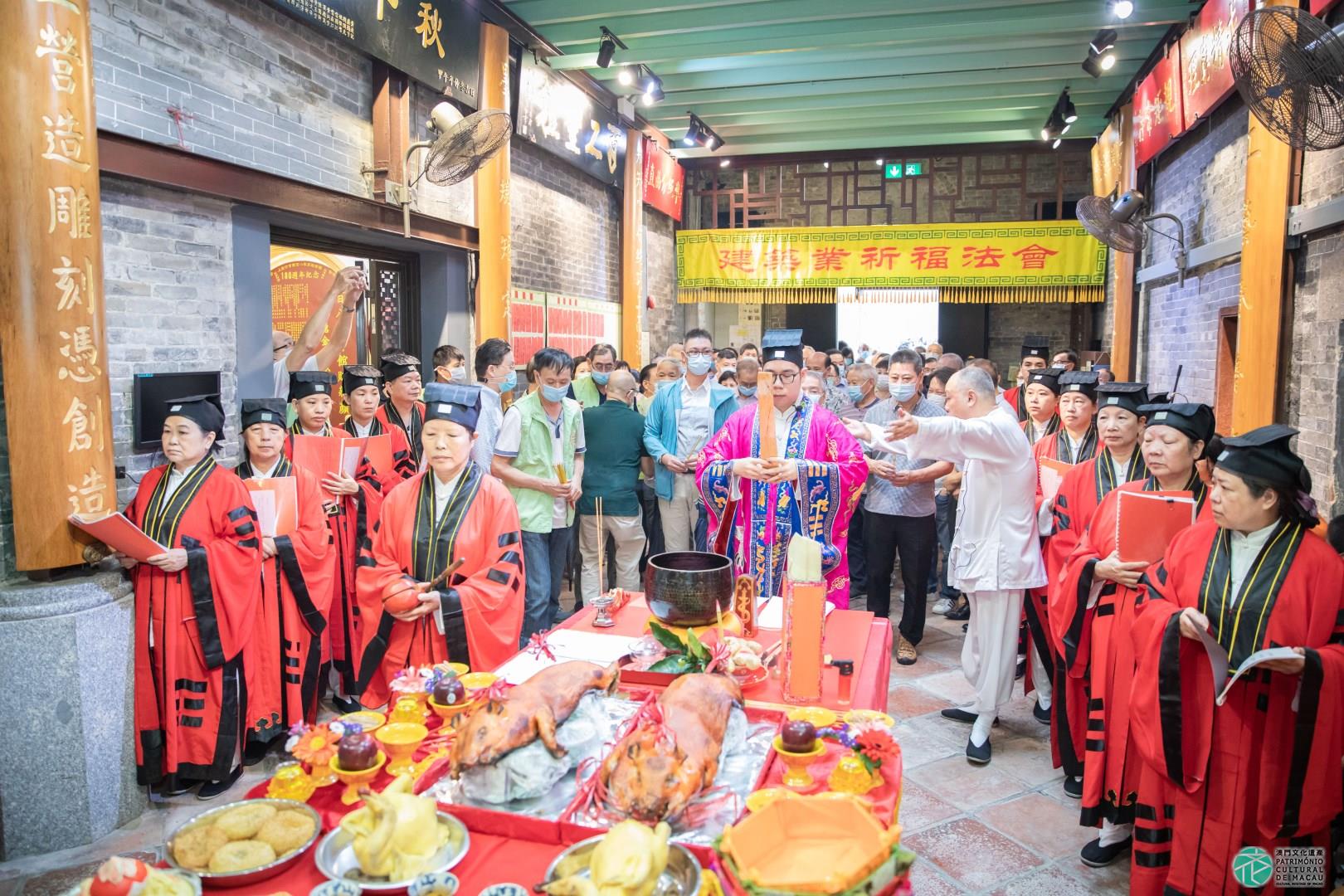Introduction:
Lou Pan was a famous craftsman of the Spring and Autumn period, being revered by later generations as the ancestor of craftsmen, carpenters and plasterers and the patron deity of these industries. The belief in Lou Pan in Macao is a long-standing tradition and the Lou Pan Celebrations are held every year on the 13th day of the sixth lunar month by most local temples that worship Lou Pan. In Macao, temples that venerate this deity, there are folk celebrations with local characteristics, including incense burning, worshipping and hosting banquets. On that day, some workers from the three mentioned industries take a day off to celebrate, noting that these celebrations are an important event for local workers connected with carpentry, bamboo scaffolding, plastering and shipbuilding industries.
Conservation Status:
Local temples and organizations that are dedicated to the worship of Lou Pan, include the Macao Carpentry Trade Union, the Ian Tak Tong Kong So (Lou Pan Si Fu Temple) and the Guildhall of Kung Sin Hang (Shipbuilding Trade). A series of activities are organized by these groups during the Lou Pan Celebrations, which is one of the most cherished events for business owners and workers, who actively participate in the activities, burning incense and worshipping this deity. Sometimes, banquets are also organized for participants to join.
Heritage Value:
Lou Pan Celebrations are an important traditional folk activities, particularly for communities related to carpentry, bamboo scaffolding and plastering industries in Macao. The continuity of the traditions associated with Lou Pan is intimately connected with the perseverance of traditional Chinese folk culture in Macao, also representing a good indicator about the value that is recognized about the importance of these three industries and the professional that are part of the respective work force. The customs have local characteristics and are therefore also of significant value for the study of local folk culture.
